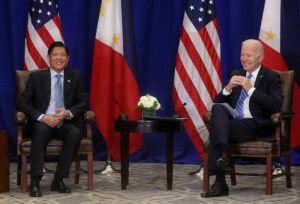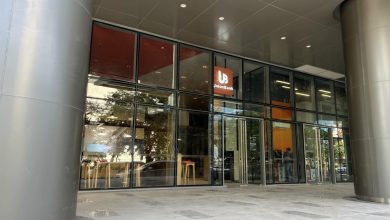US GSP could disrupt PHL export diversification

THE Philippines’ potential readmission into a US preferential trading scheme could interfere with efforts to diversify its export base, an economist said.
The US Generalized System of Preference (GSP) program “creates a dependency on the US markets, making us more vulnerable to changes and uncertainties of the US economy,” Leonardo A. Lanzona of Ateneo de Manila’s economic department, said via chat.
“If we depend on GSP-eligible products, we fail to engage in export diversification as production can be limited to these US duty-free goods,” he explained.
“It also creates a disincentive to diversify exports as GSP-eligible goods with duty-free privileges are given priority,” he added.
President Ferdinand R. Marcos, Jr. called for the Philippines’ readmission to the US GSP Program during his five-day visit to Washington last week.
“We would like to request reauthorization…to boost trade and to make US products that are made in the Philippines more competitive in the global market,” he said at a forum organized by the US-ASEAN Business Council and US Chamber of Commerce at Blair House in Washington, DC.
Manila’s eligibility for the nonreciprocal trade program expired on Dec. 31, 2020.
The Department of Trade and Industry has been pushing for the diversification of Philippine exports, saying it is key to long-term competitiveness. Trade Secretary Alfredo E. Pascual called for diversification last month following a significant drop in Philippine merchandise exports in February.
Mr. Lanzona said many countries are given GSP privileges, which means that the Philippines will “still need to compete with other GSP eligible countries if we want to increase our export revenues.”
The Philippines’ active trade deals including the Regional Comprehensive Economic Partnership (RCEP), as well as a number of trade privileges enjoyed as a member of the Association of Southeast Asian Nations (ASEAN).
“Instead of asking for the Philippines’ participation in the trade program, the Philippines should just focus on making RCEP work for its industries,” Mr. Lanzona said.
In 2020, the Philippines was deemed to have benefited from the US GSP program at a scale behind only Thailand, Indonesia, Brazil, and Cambodia.
Participation in the trade program requires the approval of the US Congress.
Lucio B. Pitlo III, a research fellow at the Asia-Pacific Pathways to Progress Foundation, said Mr. Marcos did not make full use of the potential leverage afforded by the expansion of the 2014 Enhanced Defense Cooperation Agreement (EDCA).
“If he wants to expand economic ties or leverage the alliance to pursue economic goals, he could have asked for the GSP before or as one of concessions for granting additional EDCA sites,” he said via chat. “He could also seek a firm US commitment to invest in processing critical minerals like cobalt and nickel crucial for next generation technologies like electric vehicles and green energy.”
In February, Mr. Marcos announced the expansion of EDCA, giving Washington access to four more military bases on top of the existing sites, a move seen as improving the US military’s position in any China-Taiwan conflict.
Some analysts have described the GSP readmission process as subject to horse-trading the Democratic Party, which controls the Senate, and the Republican Party, which controls the House.
“The chances of the Philippines making it again to GSP program will depend on how parties would like to shape the US-Philippine alliance as a way to counter China’s rise as a global power,” Arjan P. Aguirre of the Ateneo de Manila Political Science department said via chat.
“We can expect here the intense partisan politics and clear party divides to determine this outcome.”
Hansley A. Juliano, a political economy researcher studying at Nagoya University, said Philippine lobbying for GSP status faces roadblocks from Republican legislators critical of Mr. Biden’s foreign policy and Democrat legislators skeptical of the human rights situation in the Philippines.
“Understandably, US lawmakers tend to be more generous to Ukraine due to the more tense security situation, and the push here in Asia might be relying on an assumption that… they can just give (the Philippines) the bare minimum,” Mr. Juliano said.
“Approving the Philippines’ readmission into the GSP program would hardly cost their economy, but it would gain them a most loyal ally in the person of our President and our government,” policy analyst Michael Henry Ll. Yusingco said via chat.
“This is the calculation I would expect them to make.” — Kyle Aristophere T. Atienza




